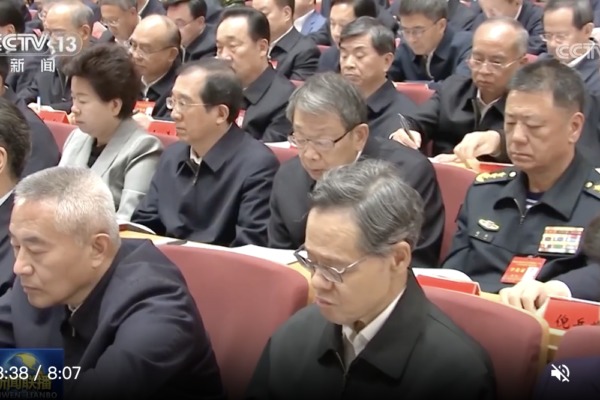China's economy has been sluggish for several years, leading to a wave of brick-and-mortar store closures in many cities. People now realize that the pandemic was only the beginning of difficult times. (Video screenshot)
[November 12, 2024] Last week, foreign fund managers quickly pulled out from China’s exchange-traded funds (ETFs). This wave of withdrawals has now lasted for four weeks, indicating a loss of patience in the market.
On one hand, Trump’s election victory has heightened the possibility of tariffs on Chinese exports; on the other, Beijing’s stimulus measures have failed to convince investors that China can withstand the looming challenges.
On Monday (November 11), Bloomberg reported that $315 million exited the $9.5 billion Chinese large-cap ETF last week, marking the fourth consecutive week of outflows since a significant inflow in early October. Additionally, the MSCI China ETF saw an outflow of $280 million during the same period.
Roxanna Islam, Head of Sector Research at TMX VettaFi, told Bloomberg, “Chinese ETFs have taken a big hit as Trump has consistently pushed to reduce reliance on China and promote American manufacturing.”
“Following Trump’s victory, investors are optimistic about U.S. stocks, and with potential trade policy changes and tariffs, many international funds are withdrawing from China,” she added.
Investors are optimistic about Trump’s return to office, expecting tax cuts and deregulation, which has also dampened interest in risk assets to some extent.
Another key reason for the withdrawals is disappointment in Beijing’s recently announced stimulus plan, which focused on reducing local government debt burdens rather than providing the broad fiscal support that many investors had hoped for.
Islam noted that investors had been waiting for Beijing to announce a stimulus plan to address the mounting debt levels. Now, with no broad-based stimulus in sight and Trump taking office, investor disappointment has deepened.
This week, Chinese ETFs have shown few signs of improvement. After Beijing released the latest economic data over the weekend, UBS downgraded its forecast for China’s economic growth in 2025, predicting “around 4%” growth in 2025 and a “significant slowdown” in 2026.
The bank also noted that the incoming Trump administration is expected to begin imposing additional tariffs on most Chinese imports in a “phased approach” starting in the latter half of next year.
This is the second time this year UBS has downgraded its growth target related to the Chinese economy.
Malcolm Dorson, Senior Portfolio Manager at Global X Management, told Bloomberg, “What Beijing is offering us is more of a band-aid than a booster shot. Overall, we can expect more meetings and more stimulus measures, but the market is losing patience.”
Editor: Lin Yan











News magazine bootstrap themes!
I like this themes, fast loading and look profesional
Thank you Carlos!
You're welcome!
Please support me with give positive rating!
Yes Sure!